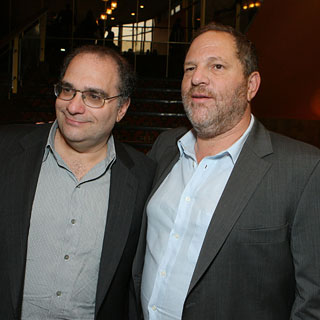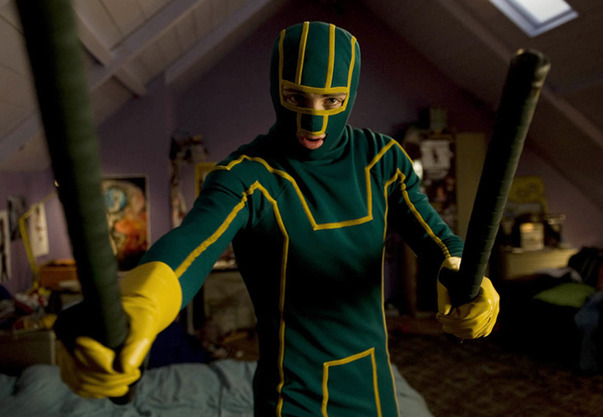
We ‘ve all seen him. Up in the attic or down in the basement of some somber structure. Wearing his white sheet, peeping out of his eye holes, rattling the Dickensian chain that binds him to eternal suffering. Thanks to countless movies, it seems a given that ghost are at best pathetic and at worst evil. But like the clown that laughs to mask his tears, the ghost moans for want of a song and rattles his chain to show his spirit unbroken.
Contrary to popular belief, horror movies are not the natural habitat of the ghostly. Horror movies are built around violence and, by nature, ghosts abhor violence. Although by definition a ghost is born of a turbulent end, it does not mean that they enjoy or propagate violence—especially all of that accompanying blood, guts, and gore. It seems obvious that a ghost would want to forget it’s untimely and traumatic end and instead move forward into a new, excited life (afterlife) of materializing through walls, playing lovable tricks on new home owners, and transcending space and time. But, unfortunately, we are all too eager to keep these poor creatures out of comedies, romances, and dramas, and instead limit them to the company of serial killers, vampires, monsters and other Horror movie beings of questionable repute. Like a person looking for paradise and realizing that it is all around, let’s enable the ghost to realize his exorcism in the here and now through good movie roles.
To understand the need for correcting the injustices inflicted on the undead, we will look at examples of both offending and praiseworthy ghost-based movies.
A Haunting in Connecticut, or any of the other identically offensive movies of its ilk. Based on a true story that occurred exclusively in the toxic flora and fauna of the writer/director/producer’s brain, A Haunting in Connecticut tells the story of a teenager stricken with cancer (too serious a topic to be in a film this bad) who moves with his parents to a house that formerly happened to be a funeral home/Séance Club/gruesome murder site. As his condition worsens, our teenage hero begins to teeter between the lands of the living and the dead, and before long, he and his family are battling evil spirits with the help of a kindly ghost occupying the house. Like any standard Hollywood horror movie there are two kinds of ghosts: the good ghosts and the bad ghosts. Simply put, the evil ghosts only care about initially unsettling and then eternally damning their living victims, while good ghosts are sadly creatures (typically past victims of said evil spirits) who provide assistance to the living and our rewarded at film’s end with a release from their ghostly state. The most often cited example of the “good ghost” is Grandpa from Troll 2. At the moment when the trolls’ clever use of Nilbog (goblin spelled backwards) milk finally has rendered our heroic family vulnerable to supernatural digestion, Grandpa materializes to stop them with bolts of lightening—a trick, he explains to his worried grandson in one of Troll 2’s many classic lines, that he did not learn in hell, “but from someone I knew who had been there”. Whew! Thanks grandpa. The good ghosts remain completely good and the evil ghosts completely evil. With such a boring trope, it’s no wonder that filmmakers feel compelled to fill any movie involving ghosts with blood, sex, and special effects.
Ghostbusters and Ghost
In the hit movie Ghost, however, Patrick Swayze plays a good man whose good spirit seeks to save his true love, Demmie Moore. Thankfully in this film, the ghost has escaped its “proper” role in the horror movie across the lot and materialized in a romantic drama. Here the ghost is not exploited for mere shock value but plays a role both poetic and compelling. You only have to see the “Unchained Melody scene” to know the emotional depths of which I speak. From Ghost, we realize that spirits aren’t all that different from the living because fundamental to any life or afterlife is a need for meaningful connection. The very human need to communicate or touch or be known by another provides the impetus of any good ghost story.
It’s important, however, to remember that ghosts are not just humans lacking breath. In fact, they have a psychological complexity unique to their supernatural state. No one speaks more eloquently of this than Ghostbuster’s Slimer. Aside from the occasional hotel cake or sliming, Slimer wants nothing to do with the world of the living. He acts on his own unique desires and motives. Not only does he appear different than a typical human turned ghost, but also from other ghosts in the same film! It took a comedy to reveal that ghosts can act, think, and look different, as well as be unconcerned with what the living think of them (“No more Dana, only Zul”). Wizards (Harry Potter), vampires (True Blood) and others have finally gotten their creative due; it seems only fair to give the sophisticated and versatile ghost a try too.
Ghost, Ghostbusters, The Sixth Sense, and a handful of other movies reveal that the ghost has outgrown the haunted house. They are ready for candle-light dinners, car chases, sweeping epics, cast-parties with Tracy Morgan, and anything else that the bright lights of Hollywood have to offer. Contrary to the movies you’ve seen, ghosts have nothing to do with vampires—let them into the light and give them their close-ups.












 used to his likeable unlikeability when the worst thing I've ever heard popped into the movie and stayed: Melodie St. Ann Celestine's atrocious, inauthentic, insulting southern accent. Basically she's a wayward southern bell from “Meeseeseepee” who left a broken family for the “Ceetee.”
used to his likeable unlikeability when the worst thing I've ever heard popped into the movie and stayed: Melodie St. Ann Celestine's atrocious, inauthentic, insulting southern accent. Basically she's a wayward southern bell from “Meeseeseepee” who left a broken family for the “Ceetee.”